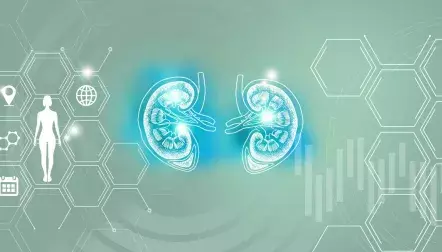
Angiotensin-converting enzyme (ACE) inhibitors & angiotensin receptor blockers (ARBs)
- Medically reviewed by
- Dr. Kunal Bailoor
- Last updated
- January 12, 2024
What are angiotensin-converting enzyme (ACE) inhibitors & angiotensin receptor blockers (ARBs)?
ACE inhibitors and ARBs are types of medicines taken by mouth (orally) that help control blood pressure. They make blood vessels relax so blood can flow more easily. This helps your heart and kidneys work better.
What health conditions do ACE inhibitors and ARBs treat?
These medicines are used to treat many different health conditions. Some common health conditions include:
- High blood pressure(hypertension)
- Heart disease, including heart failure, heart attack and stroke
- Chronic kidney disease
- Glomerular diseases: A group of diseases that affect how well your kidneys work, for example, IgA nephropathy
- Proteinuria (also called albuminuria): Protein in your urine (pee)
Common ACE inhibitors and ARBs
ACE inhibitors have generic names that end in "-pril". Common examples are:
- Lisinopril
- Enalapril
- Ramipril
- Captopril
- Benazepril
ARBs have generic names that end in "-sartan". Common examples are:
- Losartan
- Valsartan
- Irbesartan
- Telmisartan
- Olmesartan
You should not mix both types of these medicines. You should use either an ACE inhibitor or an ARB, but not both together.
How do ACE inhibitors and ARBs slow down the damage to my kidneys?
These medicines can slow down kidney damage by:
- Lowering blood pressure
- Lowering stress on your kidneys
- Blocking hormones that can worsen kidney function
How do ACE inhibitors and ARBs work?
ACE inhibitors and ARBs both work by lowering the effects of angiotensin-2 (AT2) in the body. AT2 is a hormone that raises your blood pressure. Hormones are chemicals that help different parts of your body know how to work.
Here is how this works:
- When your blood pressure drops too low, your body makes AT2 to help bring it up.
- AT2 works by making your blood vessels narrower, especially in the kidneys.
- In certain diseases like chronic kidney disease, your body produces too much AT2
- When there is too much AT2, the blood vessels in your kidneys are not able to relax, which can cause high blood pressure and kidney damage.
- ACE inhibitors and ARBs help lower the effects of AT2:
- ACE inhibitors reduces how much AT2 your body makes.
- ARBs prevent AT2 from making your blood vessels more narrow by blocking certain receptors that AT2 uses to work.
What are some common side effects of ACE inhibitors and ARBs?
Some common side effects include:
- Cough
- Feeling dizzy or lightheaded if your blood pressure gets too low
- Headache
- Feeling tired (fatigue)
- Upset stomach
- High potassiumin your blood (hyperkalemia)
- Loss of taste
These side effects can vary between people. Talk to your doctor if you have any concerns.
It is important to talk to your healthcare provider about medication and medication management questions you have.

